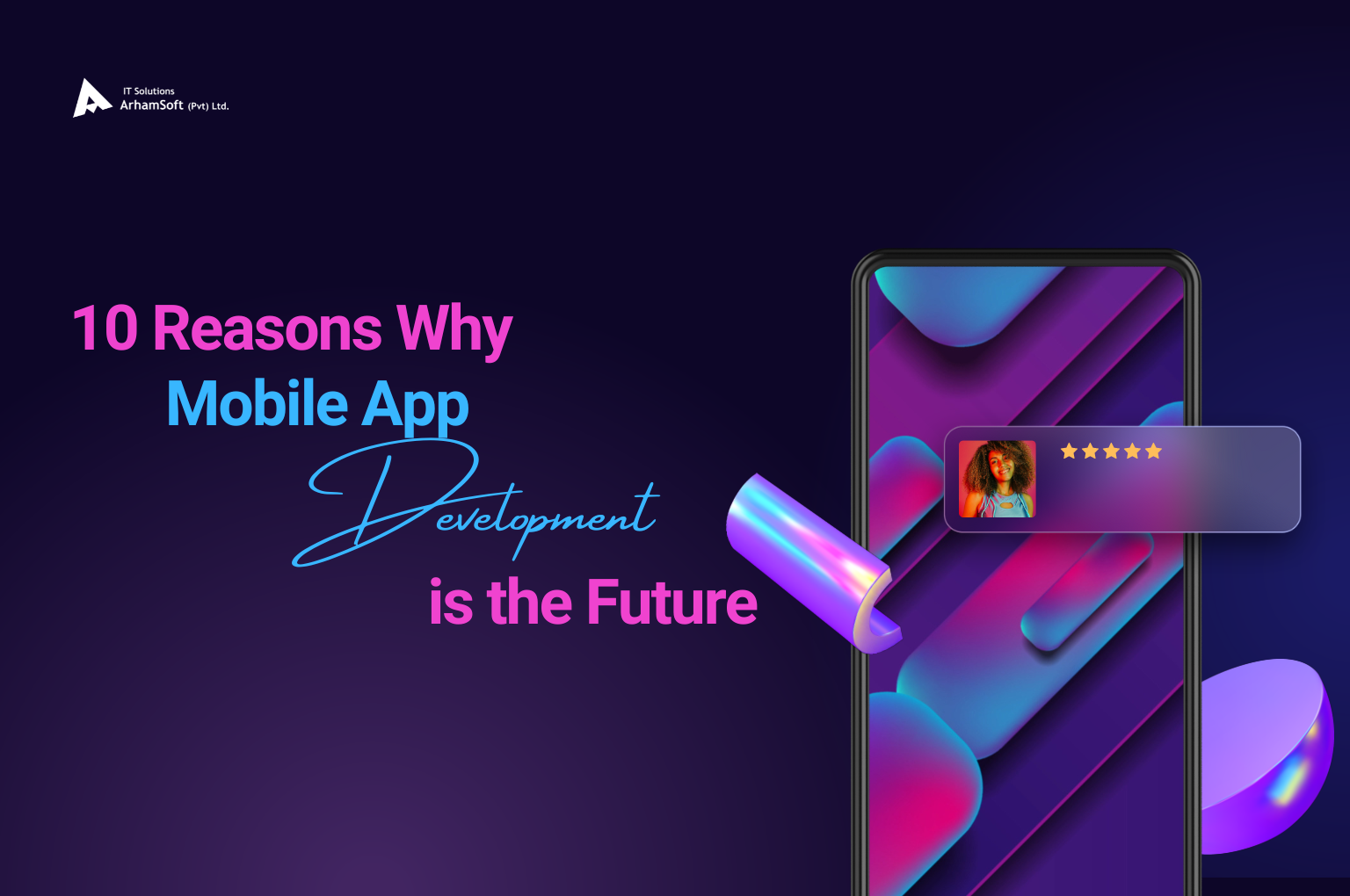
10 Reasons Why Mobile App Development is the Future
IBM’s Simon was the first phone released in 1993, featuring built-in apps, a calendar, a contact book, and a touch screen. Blackberry presented a game-changing phone Java-based 5810 model in 2002. The device was introduced with integrated apps like connected wireless email. This phone offered significant support for the swift development of mobile apps. People can hire mobile app developers from reputable firms.
However, Java is still the main development language for most Android-based apps. Google and Apple effectively launched app stores in 2008. Around 230 billion first-time mobile app downloads were recorded globally for Apple and Android devices. The app development exploded and increased demands for Android and iOS developers. You can find reputable firms to hire dedicated mobile app developers.
Here are 10 major reasons mobile app developers will consider in 2023.
1. 5G Sets the Foundation
The exposure to 5G (5th generation) wireless technology is establishing a much better part of the technology. However, most wireless network carriers had just started offering 5G access in 2021 with a major focus on providing 5G speed. It is a much more powerful technology compared to the current 4G. This technology is capable of operating 100 times faster than existing networks.
This technology enables individual people to enterprise networks. It allows them to connect with machines, devices, smartphones, and wearables. This technology provides a better user experience with its much higher speed and reduced latency for transferring information in milliseconds. Users watching HD videos on their devices without compromising quality or buffering are a simple use case of this technology.
2. AR & VR Ahead of Gaming
AR (augmented reality) technology uses real-life objects to implement artificial images and objects such as playing Pokémon Go. However, VR (virtual reality) can create an artificial environment. It enables users to work out, discover new locations in other countries, and experience concerts developed in a charming world.
AR and VR technologies are stretching to various other industries such as retail, real estate, and travel sectors. A 3D virtual tour platform Matterport developed an iOS app in 2020. It enabled home sellers to use LiDAR sensors from their smartphones or tablets to scan their homes. Meanwhile, this ability was only achievable with costly camera stuff.
3. The Involvement of Artificial Intelligence (AI)
Artificial Intelligence is a new technology in mobile app development. It allows algorithms to use advanced machine learning to learn from users’ past behavior and to pull data for prediction. AI is also added in future app development such as biometric, facial, and speech recognition to improve safety features.
Other sectors including financial and insurance companies can effectively use AI and machine learning. The technology allows them to enhance data security, and user safety, and to support mentioning fraud. However, describing and preventing fraud will become essential as more people are using smartphones and other devices for payment.
4. Use of Blockchain for Cryptocurrency
Blockchain is the underlying technology used in several new applications but is typically linked with digital currency. A blockchain is considered a digital ledger normally used to record transactions. However, modification or removal is virtually impossible after a transaction comes on the blockchain. This technology is more beneficial to secure identities and track digital assets.
P2P payment apps and mobile wallets are effectively using blockchain technology for security and enhanced transaction speed. At least 68 million people now have blockchain wallets. They also downloaded around 5.6 million blockchain wallet apps in January 2021. Various industries are expected to combine blockchain technology with smart contracts and IoT.
5. Wearable devices with More Functionalities
Wearable devices include various smart devices such as watches and earbuds. These devices can perform a series of functions such as voice activation for phone calls. More than one billion connected wearable devices are in use around the world. The wearable technology market recorded $116 billion in 2021. Mobile app development services have increased with an outsource mobile app development approach.
Experts have predicted the estimated growth could reach $265 billion at the end of 2026. Wearable devices sustain a significant share of consumer electronics, especially in healthcare. Some brands such as Apple Watch and Fitbit have received clearance from the US FDA. These wearables offer an electrocardiogram app for monitoring heart strangeness.
6. More Comfort with the Internet of Things (IoT)
Devices with embedded computer hardware are rapidly increasing with the invention of the Internet of Things or IoT. The innovation of IoT covers a massive range of several systems. Some users are already familiar with the internet-connect home systems. This type of smart home technology can effectively control lights, speakers, doorbells, security locks, and many others.
The IoT is also capable of connecting medical device monitors and auto information centers. Various firms are using this technology to automate and control manufacturing equipment. It would enable consumers to monitor smart devices using their smartphones while getting operational data and malfunctions-related warnings.
7. Advanced App Development for Mobile Commerce
People around the world are using mobile wallets for payments. So, Google Wallet and Apple Pay have experienced constant growth in popularity with effective methods. More companies are shifting towards offering cashless and card-free payment options to their consumers.
However, the general trend toward mobile commerce is increasing for new app development. Some existing companies need to offer mobile payment and shopping options to their customers. But newer businesses and companies can start with less investment using mobile commerce solutions.
Also Read: The Benefits of Using Coco n Deals for Your Online Shopping
8. The Development of Cloud-based Apps
Cloud migration has become a more effective solution to store a large amount of data. This precious information enables developers to create apps not limited to the internal storage capabilities of smartphones.
The app runs faster using cloud-based data after considering the user experience without utilizing much memory on the phone. Users can efficiently access app features on the cloud despite the hardware specs of smartphones.
9. Instant App instead of Full App
The apps that you don’t need to download to your smartphone are Instant Apps. These types of apps are also known as progressive apps and you can use your browser to access instant apps. You just need to add a button on your smartphone to work as a standard app. This new idea can offer an app-like experience without downloading a full app.
10. Location Services & Motion Sensing
Motion sensing services enable users to remotely monitor their homes, businesses, and various other operations. Several types of apps are now using location-based services. These apps can create personalized offers and ads for providing directions to specific services and goods.


